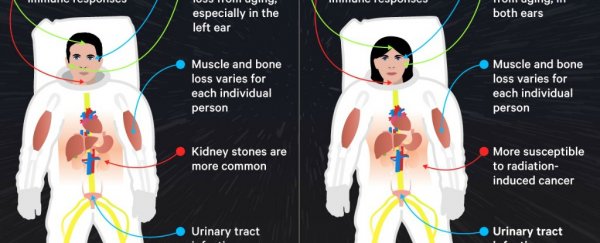The effects of zero gravity on the human body are taxing, regardless of gender, and NASA has found no differences between men and women in terms of their psychological and behavioural responses to space flight.
But sex and gender do seem to have a role in how being in space for long periods of time affects astronauts' bodies.
In June 2013, NASA, along with the National Space Biomedical Research Institute (NSBRI), released a report after studying the cardiovascular, immunological, sensorimotor, musculoskeletal, reproductive, and behavioural effects of space on men and women.
Because of an imbalance in the data available at the time - 477 men vs. 57 women - it's difficult to come to solid conclusions based solely on gender, but the research found some intriguing possibilities.
We created an infographic (based on NASA's own) that highlights some of the differences NASA found between men and women in terms of the effects (and potential effects, based on physiology on Earth) of long-term space flight:
 Skye Gould
Skye Gould
This article was originally published by Business Insider.
More from Business Insider:
